Pennsylvania Personal Injury Laws
Pennsylvania's structure for personal injury law serves as a cornerstone for justice, reflecting the state's dedication to safeguarding its residents through meticulously crafted statutes and regulations. From maneuvering the complexities of Comparative Negligence Law in traffic accident cases to understanding the stringent liabilities imposed on dog owners, the legal territory of personal injury in Pennsylvania is both vast and intricate. This exploration invites a closer examination of how these laws not only delineate the boundaries of liability and compensation but also reveal the state's nuanced approach to ensuring equitable remedies for those harmed. As we proceed, one cannot help but wonder how these legal principles are applied in real-world scenarios, setting the stage for an enlightening discussion on the practical implications and challenges faced by individuals seeking justice within this legal framework.
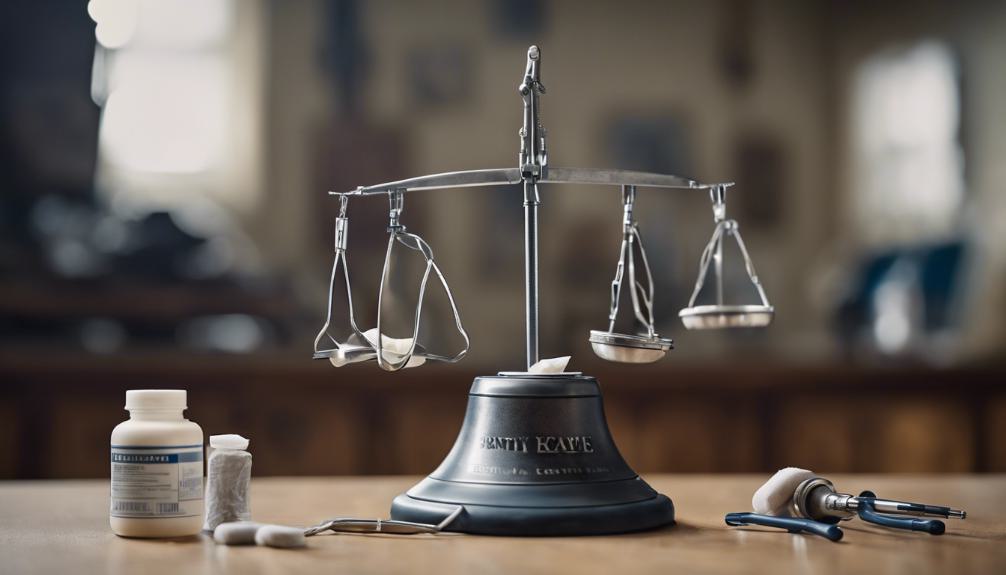
Key Takeaways
- Pennsylvania enforces strict liability for dog bite owners, covering medical costs without proof of fault.
- The state follows a comparative negligence rule, affecting payment in shared fault personal injury cases.
- Traffic accidents, including car and truck incidents, are significant sources of personal injury claims.
- Legal support is available through the Pennsylvania Bar Association and Pennsylvania Legal Aid Network for those affected.
Personal Injury Overview
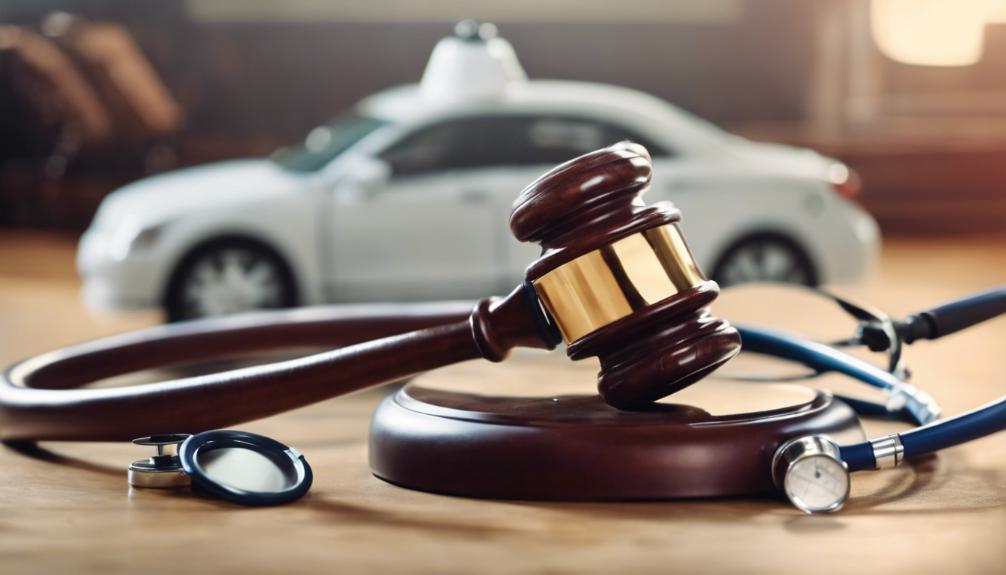
Understanding the landscape of personal injury laws in Pennsylvania is essential for traversing the legal framework that encompasses a wide array of injuries and incidents. The state's legal system provides avenues for individuals to seek compensation for damages sustained due to another's negligence or wrongful acts. Pennsylvania operates under a comparative negligence rule, which allows for the apportionment of fault among parties involved in an accident. This principle importantly influences the outcome of many personal injury claims, as compensation can be adjusted based on the claimant's degree of fault. Additionally, the state imposes strict regulations on activities such as boating, emphasizing the need for adherence to safety standards to mitigate the risk of accidents and subsequent legal liabilities.
Common Injury Claims

Given the broad landscape of personal injury laws in Pennsylvania, it becomes imperative to examine the most frequently encountered types of claims, which encompass a range of incidents from dog bites to workplace accidents. Excluding dog bites, which are governed by strict liability, slip and fall accidents represent a significant portion of personal injury claims. Property owners can face lawsuits under both strict liability and negligence principles, with the critical negligence rule playing a fundamental role in determining compensation. Workplace accidents, another prevalent category, underscore the importance of employers providing Workers' Compensation insurance. Traffic accidents, including car and truck mishaps, are a major source of personal injury claims, with Pennsylvania's comparative negligence law affecting the outcome of these cases by considering shared fault.
Dog Bite Regulations
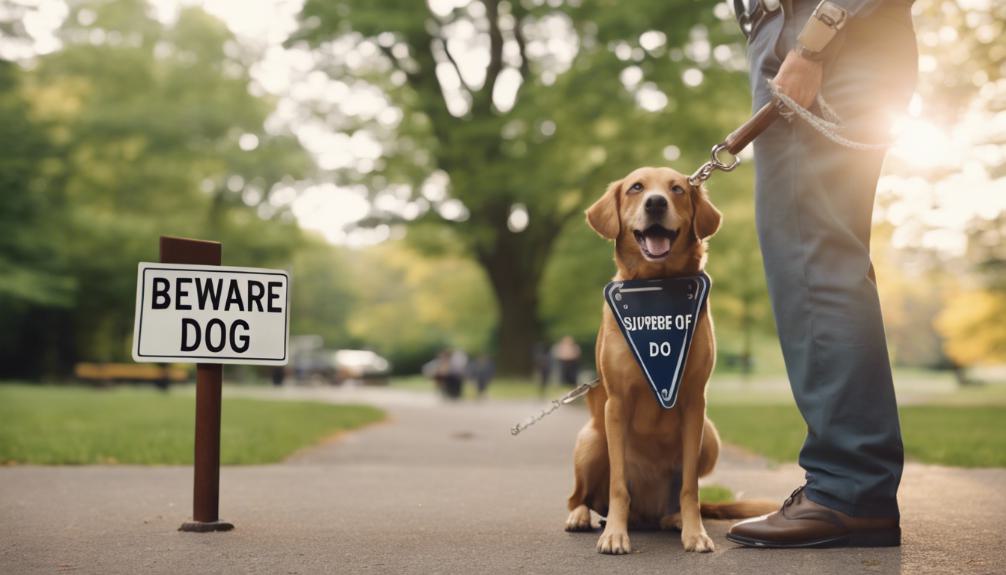
Pennsylvania's dog bite regulations impose strict liability on dog owners, making them responsible for any injuries their pets cause without the need for the victim to prove negligence. This legal framework simplifies the process for victims seeking compensation for their injuries. Specifically, under Pennsylvania law, dog owners are liable for all medical costs related to the injury. However, for damages beyond medical expenses, such as pain and suffering, the victim may need to demonstrate that the dog owner was negligent or that the dog had a history of aggression. This legal framework emphasizes the significance of timely action in pursuing legal recourse for dog bite injuries, as dog bite claims in Pennsylvania must be filed within two years from the date of the incident to be considered valid. This statute of limitations underscores the importance of timely action in pursuing legal recourse for dog bite injuries.
Slip and Fall Guidelines
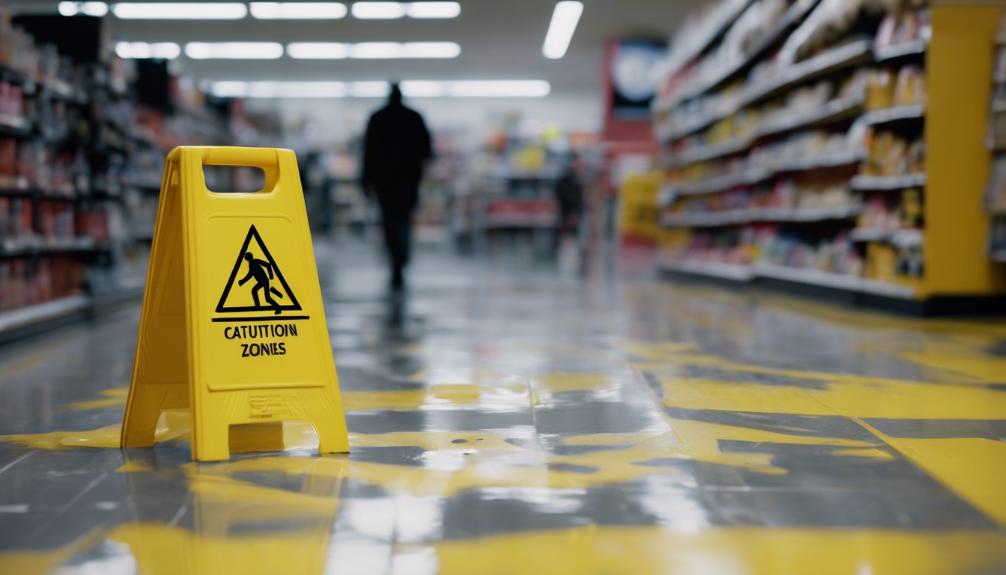
Slip and fall accidents, often resulting from unsafe property conditions, subject property owners to potential legal liability under Pennsylvania law. These incidents can occur anywhere, from commercial properties to private residences, and Pennsylvania statutes meticulously outline the responsibilities of property owners. They must maintain a safe environment for visitors; failure to do so can result in negligence claims. Pennsylvania applies the comparative negligence rule, which means that if the victim bears some responsibility for the accident, their compensation can be proportionately reduced. Victims have a two-year statute of limitations to file a claim. Understanding the nuances of these regulations is crucial for both property owners and those injured in slip and fall accidents to protect their rights fully.
Workplace Injury Rights
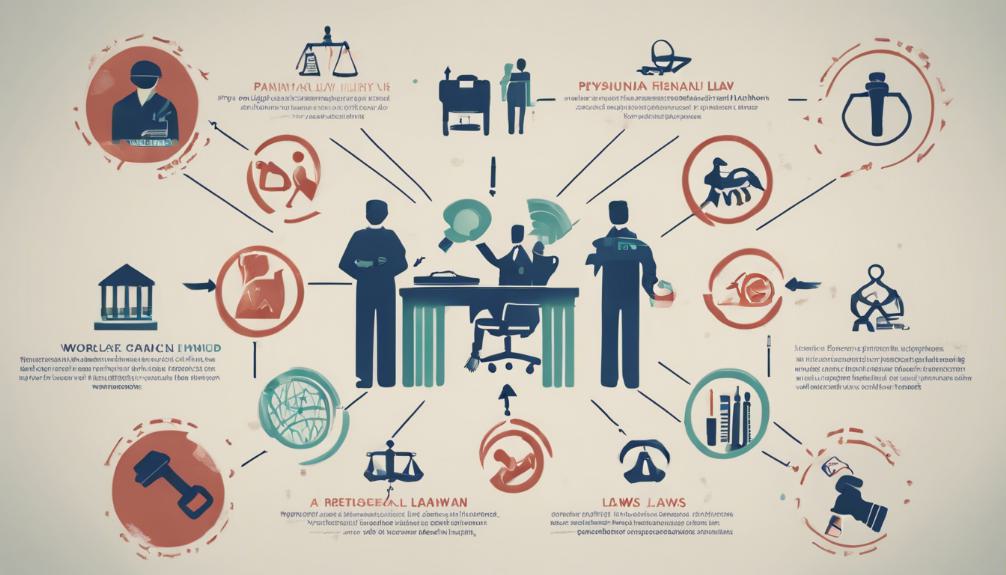
In Pennsylvania, employees who suffer injuries at the workplace are entitled to workers' compensation benefits, irrespective of fault. This legal framework is designed to make sure that injured workers receive prompt medical care and financial support during their recovery period. The system covers all types of injuries, from minor accidents to serious, life-altering conditions. Importantly, workers' compensation benefits are available even if the injury was a result of the employee's own mistake, emphasizing a no-fault approach.
Employers are required by state law to carry workers' compensation insurance to cover such incidents. In the event of a workplace injury, employees should immediately report the incident to their employer to initiate the claim process. Legal guidance from a workers' compensation attorney can be invaluable in addressing potential complexities and securing the full benefits to which an employee is entitled.
Traffic Accident Insights

Why are traffic accidents a significant concern for residents and lawmakers in Pennsylvania? In 2021 alone, the state witnessed 1,230 fatalities due to traffic incidents, underscoring the critical importance of addressing road safety. These accidents not only result in loss of life but also contribute substantially to the volume of personal injury claims filed each year. As a major source of personal injury, traffic accidents invoke the application of Pennsylvania's Comparative Negligence Law, which intricately assesses shared fault among parties involved. This law plays a pivotal role in determining the compensation victims may receive, influencing both the legal landscape and the lives of those affected. The high incidence of road accidents necessitates stringent adherence to safety regulations and highlights the ongoing need for legislative and community efforts aimed at prevention.
Transportation Law Details

Pennsylvania's transportation laws encompass a wide range of regulations, including weight and size limits for vehicles, to guarantee road safety and compliance. These laws are critical in managing the flow of traffic and ensuring that the roads remain safe for all users. For instance, the state imposes a weight limit of 80,000 pounds for vehicles, with necessary permits required for those hauling overweight loads. Failing to adhere to these regulations can result in significant fines. Similarly, size limits are strictly regulated, and permits are mandatory for oversized vehicles. These measures are not only about maintaining road integrity but also about protecting the environment and ensuring the safety of every road user, from drivers to pedestrians.
Legal Support Resources
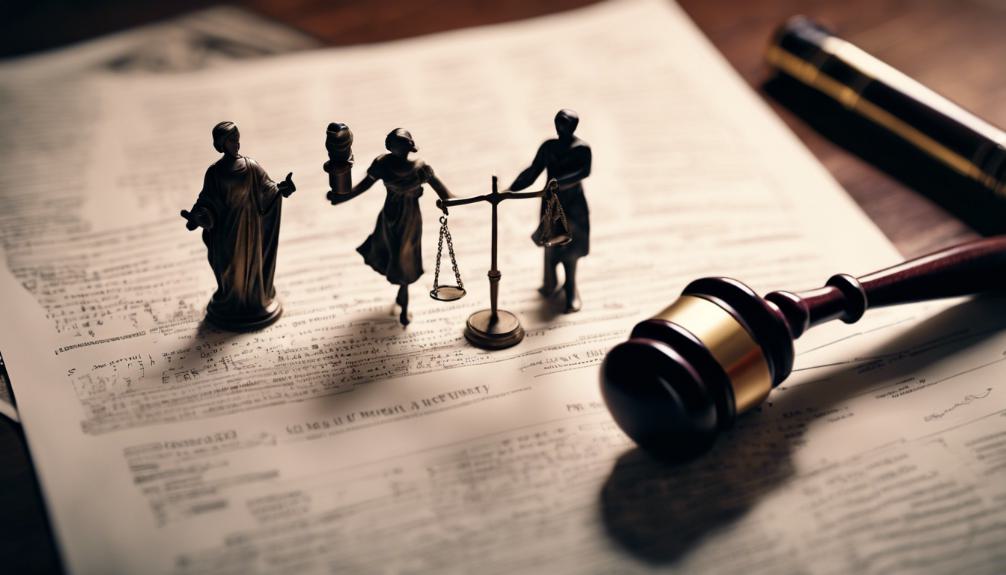
Exploring the complexities of personal injury laws requires access to thorough legal support and resources. In Pennsylvania, individuals seeking guidance or representation in personal injury cases can turn to a variety of legal support services. The Pennsylvania Bar Association's Lawyer Referral Service is an invaluable tool for finding qualified attorneys specialized in personal injury law. Additionally, the Pennsylvania Legal Aid Network offers vital support to low-income individuals needing legal assistance but lacking the resources to afford private counsel. These organizations play a pivotal role in ensuring that all Pennsylvanians, regardless of their financial situation, have access to justice and the ability to navigate the legal system effectively in the wake of personal injuries.
Federal and State Regulations
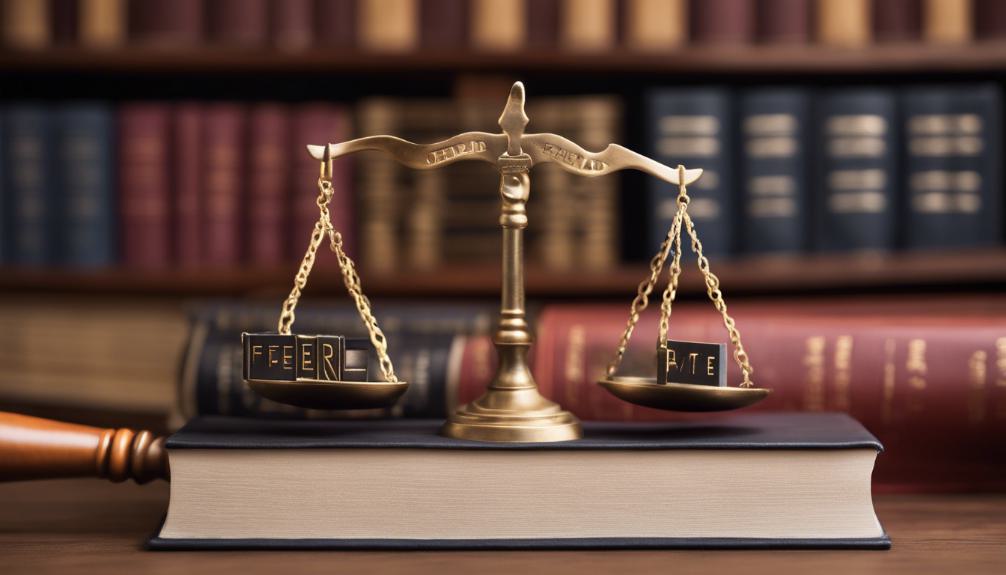
Understanding the landscape of personal injury law in Pennsylvania necessitates a thorough overview of both federal and state regulations that govern these matters. At the federal level, regulations such as the Hours of Service for commercial truck drivers play an important role in ensuring the safety of roadways. These regulations are designed to prevent fatigue-related accidents by limiting the number of hours a driver can operate a vehicle. At the state level, Pennsylvania enforces its own set of laws, including strict liability for dog bites and comparative negligence rules for traffic accidents. These laws make sure that individuals are held accountable for their actions and provide a framework for compensation in personal injury cases. Additionally, specific regulations for boating and workplace accidents underline the state's commitment to safety and justice in a variety of contexts.
Frequently Asked Questions
How Do Pennsylvania's Personal Injury Laws Address Emotional Distress Claims Without Physical Injury?
Pennsylvania's legal framework allows for the pursuit of emotional distress claims even in the absence of physical injury. Claimants must demonstrate significant emotional impact directly resulting from another's negligent or intentional actions to seek compensation.
Can a Minor File a Personal Injury Lawsuit in Pennsylvania, and if So, How Does the Process Differ From That of an Adult?
In Pennsylvania, minors can initiate personal injury lawsuits through a guardian or "next friend." This differs from adult proceedings, where individuals file directly. Importantly, the statute of limitations may extend beyond the minor's 18th birthday.
How Does Pennsylvania Law Handle Personal Injury Claims Related to Defective Products, Especially When Multiple Parties Could Be at Fault?
In cases of defective products causing injury, Pennsylvania law often involves complex litigation against multiple parties. Determining liability requires examining the roles of manufacturers, distributors, and retailers in the product's chain of distribution.
In Pennsylvania, Are There Any Specific Laws or Considerations for Personal Injury Claims Arising From Recreational Activities, Such as Skiing or Hiking?
In addressing claims from recreational activities like skiing or hiking, Pennsylvania law may involve specific considerations, such as premises liability and inherent risks, which could affect the outcome of personal injury claims related to these activities.
How Do Pennsylvania's Statutes of Limitations for Personal Injury Claims Adjust in Cases Where the Injury Was Not Immediately Discovered?
In situations where an injury is not immediately discovered, Pennsylvania law allows for an extension of the statute of limitations, enabling victims to file claims beyond the standard deadline once the injury becomes known.
Conclusion
In summary, the legal landscape of Pennsylvania serves as a robust framework, akin to a lighthouse guiding ships through a tumultuous sea, offering clarity and direction amidst the complexities of personal injury claims. The state's thorough regulations, from dog bite laws to traffic accident insights, guarantee a balanced and fair process for all parties involved. Through the support of legal resources and adherence to both federal and state laws, Pennsylvania upholds the rights and protections of its citizens, fostering a just environment for addressing personal injuries.

This post has been generated by AI and was not reviewed by editors. This is Not legal advice. Please consult with an attorney.




